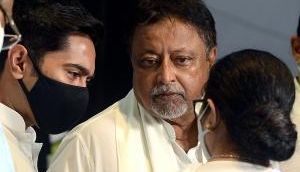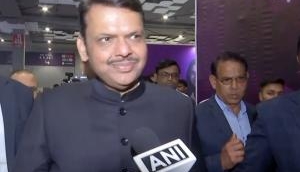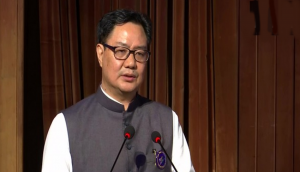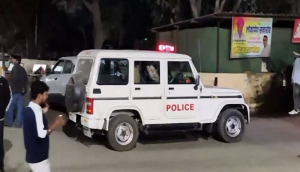
"I am glad that India was partitioned" or else the Muslim League would not have allowed the country to function and there would have been more "Direct Action Days", Congress veteran K Natwar Singh said here on Sunday.
The former foreign minister was speaking at the launch of Rajya Sabha MP MJ Akbar's new book "Gandhi's Hinduism: The Struggle Against Jinnah's Islam". It was released by former president Pranab Mukherjee at his residence.
"In my view I am glad India was partitioned. Because if India had not been partitioned we would have had Direct Action Days -- the first we had during Jinnah's (Muhammad Ali) lifetime was on August 16 (1946) when thousands of Hindus were killed in Kolkata (then Calcutta), and of course then the retaliation took place in Bihar where thousands of Muslims were killed.
"Also, it could have been impossible for the simple reason that the Muslim League wouldn't have allowed the country to function," he said.
The Muslim League, led by Muhammad Ali Jinnah, had called on Muslims to engage in direct action in support of the creation of a separate nation. On August 16, 1946, also known as the 1946 Calcutta Killings or Direct Action Day, communal riots erupted between Muslims and Hindus in Calcutta in Bengal province of what was then the British India.
To buttress his point on Muslim League, Singh gave the example of the Interim Government of India, formed on September 2, 1946, and how the Muslim League first declined to join the cabinet of the council's vice-president Jawaharlal Nehru, and later became part of it only to "turn down" all its proposals.
"Therefore you can imagine this on a larger scale, if India was not partitioned, the Muslim league would have made things very very difficult for us to function. Also, the government situation (then) would have worsened by the week," he explained.
Singh described Gandhi and Jinnah as two very "great" and "difficult" persons.
"It would have been impossible to live with them. Because Gandhiji standards were very high and Jinnah's temperament was so abrasive that I certainly wouldn't have got on with him," the 88-year-old said, adding that he must be the only one in the audience who saw Gandhi in flesh and blood.
He was of the view that it was Gandhi who pampered Jinnah on the persuasion of India's last Governor General C. Rajagopalachari.
"In many ways, and it is my judgement, that Gandhiji pampered Jinnah. In 1944, Gandhi visited Jinnah's house in Malabar Hill 17 times. But not once did Jinnah return his visits.
"Now why Gandhiji went there? I know because Shri C. Rajagopalachari ji pursued him to do so.
"Jinnah was a member of the Congress for many many years, but when Gandhi came on the scene ... Jinnah temperamentally didn't fit in with his programme of non-cooperation and gradually parted ways. In 1928 the real parting took place. That is when Jinnah went to London to become a lawyer because he thought of a political future for himself," he said.
Akbar's book was praised by National Security Advisor Ajit Doval, who was present at the event.
According to former president Pranab Mukherjee, it was a "well-written" and "deeply researched" work that could become an important reference to analyze the history of partition.
"It (the book) very clearly demonstrates the essential spiritual secularism that Mahatama ji stood for and the divisive and the utilitarian colour that Jinnah gave to religion only to secure political ends.
"Also, it chronicles how Mahatma Gandhi and the Indian National Congress stood as a firm rock against the partition of the country till the very end," he said.
The book, published by Bloomsbury, claims to analyse both the ideology and the personality of those who shaped the fate of the region, and spells out the blunders, lapses and conscious chicanery that permeated the politics of seven explosive years between 1940 and 1947.
-PTI
Also Read: Gargi College students allege harassment by ‘drunk’ men during college fest




_in_Assams_Dibrugarh_(Photo_257977_300x172.jpg)


![BJP's Kapil Mishra recreates Shankar Mahadevan’s ‘Breathless’ song to highlight Delhi pollution [WATCH] BJP's Kapil Mishra recreates Shankar Mahadevan’s ‘Breathless’ song to highlight Delhi pollution [WATCH]](https://images.catchnews.com/upload/2022/11/03/kapil-mishra_240884_300x172.png)

![Anupam Kher shares pictures of his toned body on 67th birthday [MUST SEE] Anupam Kher shares pictures of his toned body on 67th birthday [MUST SEE]](https://images.catchnews.com/upload/2022/03/07/Anupam_kher_231145_300x172.jpg)






_in_Assams_Dibrugarh_(Photo_257977_1600x1200.jpg)